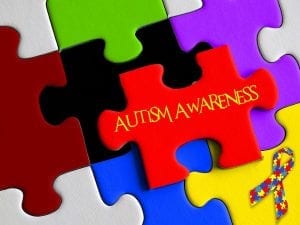Tragically, individuals with Autism and ADHD are often disproportionately represented in the criminal justice system due to misunderstandings of their behaviors and needs.
In a world that celebrates diversity and champions inclusivity, it is crucial to ensure that individuals with neurodevelopmental disorders, such as Autism Spectrum Disorder (ASD) and Attention-Deficit/Hyperactivity Disorder (ADHD), are granted the legal support they need. The challenges faced by those with these disorders can extend beyond their cognitive and emotional realms, often intertwining with legal complexities that require specialized attention. This article explores the significance of legal allies for individuals with Autism and ADHD, shedding light on the importance of expert representation to navigate the legal landscape successfully.
Understanding Autism and ADHD: Navigating Complex Needs
The Spectrum of Autism and its Legal Implications
Autism, a spectrum disorder, encompasses a wide range of challenges, including difficulties in communication, social interaction, and behavior. The legal implications of Autism can be intricate, particularly in areas such as education, employment, and healthcare. Individuals with Autism may face challenges in accessing appropriate educational services, reasonable workplace accommodations, and equitable healthcare treatment. Legal allies specializing in Autism can provide invaluable guidance to individuals and their families, advocating for their rights and ensuring that legal frameworks align with the unique needs of those on the spectrum.
ADHD and the Legal Landscape
Attention-Deficit/Hyperactivity Disorder (ADHD) is characterized by persistent patterns of inattention, impulsivity, and hyperactivity. Individuals with ADHD often encounter legal issues related to academic accommodations, workplace discrimination, and even criminal justice involvement. The role of legal allies in the context of ADHD extends to ensuring that individuals receive proper educational support, advocating for fair treatment in employment settings, and addressing the overrepresentation of individuals with ADHD in the criminal justice system. Expert legal representation can help dismantle barriers and promote understanding of ADHD’s impact on individuals’ behaviors and decision-making processes.
The Role of Legal Allies: Expertise and Advocacy
Educational Advocacy for Equal Opportunities
One of the primary challenges faced by individuals with Autism and ADHD revolves around education. Legal allies well-versed in the intricacies of these disorders can play a pivotal role in securing appropriate educational services. They collaborate with families, educational institutions, and policymakers to advocate for individualized education plans (IEPs) that address the unique needs of each student. Through informed negotiations and legal proceedings, these allies work to ensure that students with Autism and ADHD receive the necessary support to thrive academically and socially.
Employment Rights and Reasonable Accommodations

For individuals with Autism and ADHD, entering the workforce can present its own set of hurdles. Legal allies specializing in these disorders can navigate the complexities of employment law to secure reasonable accommodations. These accommodations might include flexible work schedules, modified job responsibilities, or supportive work environments. By fostering understanding between employers and employees, legal allies contribute to a more inclusive workplace that values neurodiversity and maximizes the potential of every individual.
Criminal Justice System and Fair Treatment
Tragically, individuals with Autism and ADHD are often disproportionately represented in the criminal justice system due to misunderstandings of their behaviors and needs. Legal allies specializing in these disorders can offer critical support by advocating for fair treatment and alternative sentencing options. By collaborating with law enforcement agencies, legal professionals, and community stakeholders, these allies strive to create a justice system that recognizes the unique challenges faced by individuals with Autism and ADHD and provides rehabilitative avenues instead of punitive measures.
Conclusion
As society progresses towards a more inclusive and empathetic understanding of neurodevelopmental disorders, the role of legal allies for individuals with Autism and ADHD becomes increasingly vital. These legal experts serve as champions of equal rights, navigating complex legal landscapes to ensure that individuals with Autism and ADHD receive the support and accommodations they deserve. Through educational advocacy, employment rights enforcement, and criminal justice reform, legal allies play a pivotal role in fostering a world where the legal system embraces and empowers those with Autism and ADHD to lead fulfilling lives so make sure you contact an Autism, ADHD, Tylenol Lawyer.


Join the conversation!